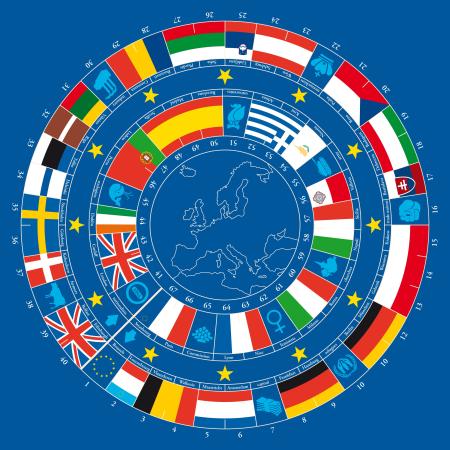On the face of it, it appears to be a mere coincidence that the Conference about the Future of Europe is to start shortly after the withdrawal of the United Kingdom from the EU. The decision to convene a conference was taken in reaction to the nomination by the European Council of a candidate for the post of President of the European Commission, who had not participated in the May 2019 elections for the European Parliament. This intergovernmental disregard for the democratic procedures practised by the EP caused such an outcry with the citizens of the Union that the Conference will be tasked to ‘give a new impetus to European democracy’.[1]
Guest blog by Jaap Hoeksma
What’s in a name?
In the run-up to the Conference, which is to start on 9 May Europe Day 2020, the major institutions of the Union, including the Commission and the Parliament, have published documents containing their preferences for the Conference. One of the most contentious issues appears to be whether or not the Conference should result in treaty change. Remarkably enough, however, none of the pre-Conference papers devotes any attention to the question as to what the term ‘European democracy’ actually means. This is the more astonishing since the decision of the UK to leave the EU was triggered by the view that the EU is an undemocratic organisation. In his ominous Bloomsberg-Speech, in which he announced his decision to organise an ‘in-or-out’ referendum about British membership of the EU, Prime Minister Cameron emphasized that ‘there is no European demos’ and that the national parliaments must provide the democratic legitimacy of the Union.[2] In his perception, European democracy means that the member states of the EU form a Union of democratic states and that the term cannot apply to the Union itself. In a similar vein, the German Constitutional Court argued in its Lissabon-Verdict of 30 June 2009 that the European Parliament lacks democratic legitimacy as it forms merely a ‘supplementary institution’, which is unable to represent the will of the people.[3]
The task of lawyers
The need to clarify the concept is the more urgent since the signatories of the 1992 Maastricht Treaty, which established the EU, did not have the intention to lay the foundations for a European democracy.[4] Opponents of the EU within the current 27 member states will therefore have ample ammunition to dismiss the Conference as an irrelevant exercise if and as long as the participants fail to explicate the meaning of the term.
Moreover, the stakeholders in the debate are likely to better understand each other if they agree on the meaning of the term under discussion.
As the task of lawyers is to study texts, it should be tried to establish whether the Lisbon Treaty sheds light on this contentious but overlooked issue. Article 1 TEU puts beyond doubt that the EU is composed of both member states and citizens. Article 2 contains the values of the Union, including respect for democracy, the rule of law and human rights. Article 49 stipulates that European states, wishing to accede to the Union, have to meet stringent criteria of democracy and the rule of law, while article 7 threatens member states in breach of these values with the suspension of certain rights. Lastly, Title II TEU embodies the democratic principles of the European Union proper, notably the right of EU citizens to participate in the democratic life of the Union. So, the EU has been construed as a Union of democratic states (articles 2, 7 juncto 49 TEU), which also constitutes a democracy of its own (article 2 juncto Title II TEU}. This interpretation is supported by the case-law of the EU Court of Justice and, from a philosophical point of view, by the theory of democratic integration.[5] It follows that ‘European democracy’ may be defined as the system of governance for the EU as a Union of democratic states, which also constitutes a democracy of its own’.[6]
The Conference about the Future of Europe
In hindsight, it is most regrettable that the EU and pro-European citizens and politicians have not been able to use these arguments in order to refute the allegations of Cameron and the Brexiteers about the so-called undemocratic character of the EU. It is hoped, however, that the present definition of the new term has been posted in time for the participants in the debate about the Future of Europe to discuss and agree on concrete proposals, aimed at making the EU a better democracy. No doubt, there is plenty of room for improvement!
[1] Policy Priorities Commission Von der Leyen, 10 September 2019
[2] David Cameron, Bloomsberg-Speech, 23 January 2013, see my blog on www.ppl.nl
[3] Kathalijne Buitenweg, The European Parliament’s Quest for Representative Autonomy, The Hague 2016
[4] J. Cloos, Le traité de Maastricht, Brussels 1993
[5] K. Lenaerts, New Horizons for the Rule of Law within the EU, German Law Journal 2020.
[6] J. Hoeksma, European Democracy, Oisterwijk 2018
